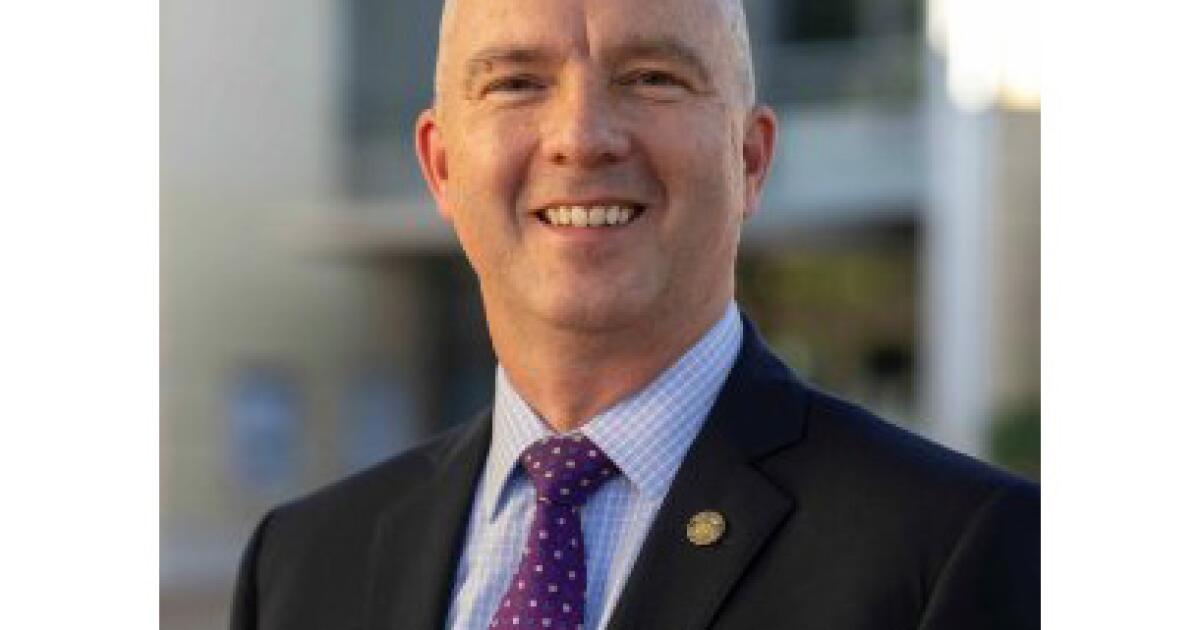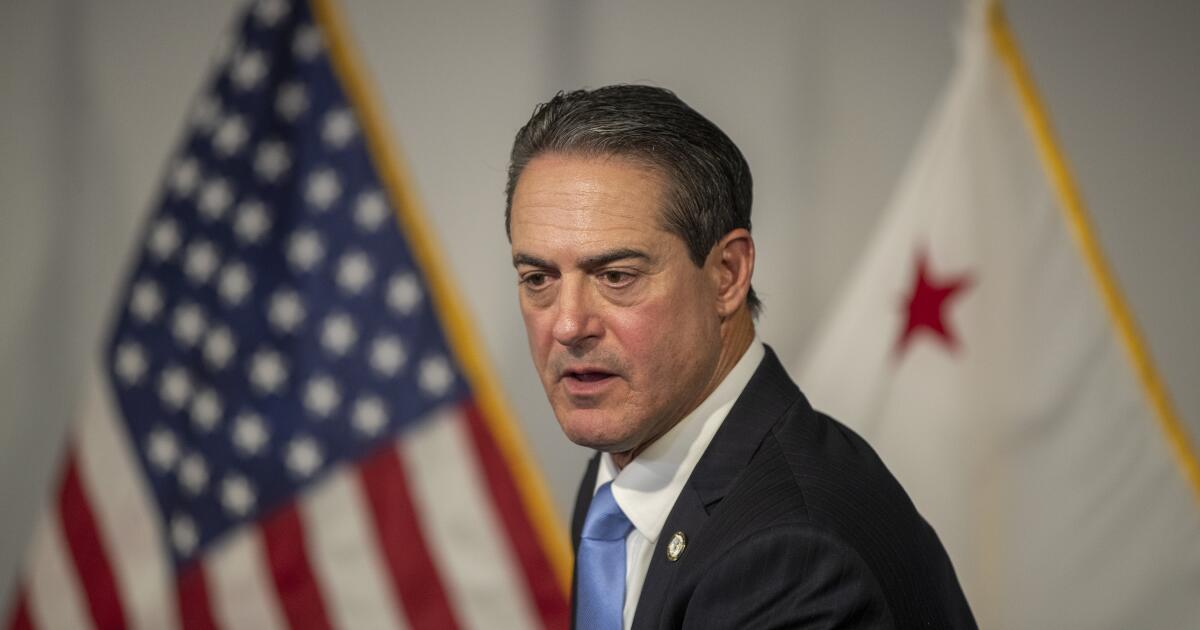California D.A. retweets 9/11 attack images as he slams Mamdani
A California district attorney reposted on social media 9/11 images along with comments blasting the election of Zohran Mamdani as New York City’s first Muslim mayor. Despite the gory images and strong denunciation of Mamdani, Dan Dow insists that he has no issues with the Muslim community in San Luis Obispo County, where he is the top prosecutor.
He has “strong ties” with the community, Dow said in an emailed statement Thursday to The Times.
But his posts have drawn backlash, and a Muslim advocacy organization is demanding an apology and an investigation.
On Wednesday, Dow retweeted a post on X from a popular right-wing account that appeared to show a snapshot moments after flames jutted from the South Tower, the second of the twin towers struck by a plane on Sept. 11, 2001.
A second visual tweet, more graphic than the first, displayed footage from two angles of a plane barreling into one of the towers. That was posted by the leader of an activist organization, described as a hate group by some, that claims to “combat the threats from Islamic supremacists, radical leftists and their allies.”
Each was posted in the aftermath of the New York City mayoral election won by 34-year-old, self-described democratic socialist Mamdani.
The posts were retweeted and subtweeted days later and 3,000 miles away by Dow, drawing rebuke from some locals, in a story first broken by the San Luis Obispo Tribune.
Dow responded to a Times email for comment saying his issue was not with the county’s Muslim population, which numbers around 500, according to the Assn. of Religion Data Archives.
“I shared the posts because, in my opinion, Mamdani is going to destroy New York being a self-proclaimed socialist,” Dow responded. “I support the Muslim community and have strong ties to our Muslim community in San Luis Obispo.”
The first post Dow retweeted came from the account @EndWokeness, which vows to its nearly 4 million followers that it’s “fighting, exposing, and mocking wokeness.”
The second post came from Amy Mekelburg, founder of Rise, Align, Ignite and Reclaim (RAIR) Foundation, which is listed as a hate organization by the Council on American-Islamic Relations.
The council’s Los Angeles office demanded Thursday evening that Dow apologize and “retract his recent anti-Muslim social media posts.” CAIR-LA is also asking for an independent investigation into Dow’s conduct and “his fitness to continue to serve as DA.”
The organization is incensed at his retweeting of Mekelburg, whom they describe as “a known anti-Muslim extremist.”
Mekelburg wrote a sizable message on the video post, saying she’d “given my entire self” to warn the world “about the threat of Islam after 9/11.”
“And now … to see New York — my city — stand in this moment, where someone like Zohran Mamdani could even be elected,” she wrote. “My God, New York, what have you done?”
CAIR-LA said that Mekelburg “falsely equated the election of Mamdani with 9/11, reinforcing the harmful stereotype that Muslims are inherently tied to terrorism simply because of their faith.”
Dow subtweeted that specific post with a message that began by highlighting his 32 years of service in the U.S. Army and his four tours overseas.
“I remember like it was yesterday our nation being attacked by Islamic extremists on 9/11/2001,” he wrote. “I love this country and I do not in any way share the same views as the 33-year-old socialist Zohran Mamdani.”
He added in the tweet: “I am very sad to see the Big Apple torn apart by electing an un-American socialist who wants to trample on the values and freedoms that millions of Americans have fought and died for.”
“Dow’s decision to repost content that weaponizes bigotry and baselessly ties an elected Muslim official to terrorism is appalling and reflects the deeply rooted dehumanization and fearmongering in this country that American Muslims have had to endure for decades,” CAIR-LA Executive Director Hussam Ayloush said in a statement.
Dow’s posts also struck a nerve with one of his Muslim allies in San Luis Obispo, Dr. Rushdi Cader, who referred to the district attorney as “a personal friend” to the San Luis Obispo Tribune.
Cader told the Tribune the posts were “highly incendiary and puts Muslims at risk for harm, especially hijab-wearing Muslim women like my wife Nisha, whom Dan has himself described as ‘a kind and gentle lady’ who he ‘prayed would be blessed with peace.’”
Cader added he thought Dow’s “ugly post” was borne “out of disagreement with Mamdani’s politics” rather than any direct attack on Islam.”
Dow’s tweets drew other rebukes.
San Luis Obispo County Second District Supervisor Bruce Gibson called Dow a “Christian nationalist.”
He “occupies a powerful public office that requires decency and discipline,” Gibson said of Dow. “This post is yet another example that he has neither.”
San Luis Obispo Mayor Erica Stewart emailed The Times to say that the city was welcoming to all community members.
“Dan Dow, as the county’s District Attorney, by definition, should be objective and fair,” she wrote. “For someone in his position to express racism is unacceptable.”
Dow had his defenders too.
Orange County Dist. Atty. Todd Spitzer serves with Dow on the California District Attorneys Assn. Spitzer is the organization’s secretary-treasurer while Dow is the president.
Spitzer found no fault with Dow’s social media posts.
“Elected officials have a platform to share their views and be judged by their constituents,” he wrote in an email. “It is heartbreaking to see someone who has expressed such anti-public safety and anti-Semitic sentiments elected as mayor of New York, and we as the elected protectors of public safety have a right to express that.”


